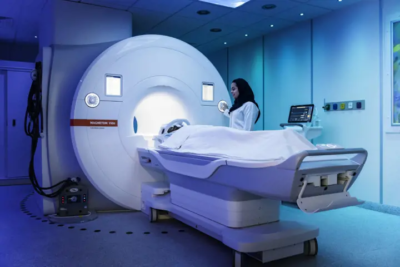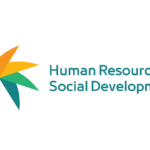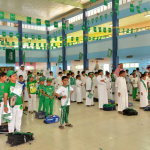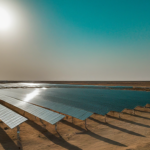
“This is an important paradigm shift for a region where investors and fund managers have shown their willingness to write checks up to a Series B or Series C level, but have been reluctant to part with the larger amounts required for Series C and Series D.”
-Areije Al-Shakar, Director and Fund Manager, Al Waha Venture Capital Fund of Funds, on how the Middle East bucked global funding trends – which fell to their lowest level since the 2008 financial crisis– with a record-breaking $659 million invested in MENA-based startups in the first half of 2020 alone. “Larger amounts of money were flowing into a smaller number of later-stage startups, and in particular to industries that have evolved in the pandemic climate, such as fintech, edtech, and healthtech.” [Entrepreneur]

“Business models that were proven weak during the pandemic will not be a target market for VCs anymore. Most startups that failed to survive the pandemic will not be able to raise funds easily with an exception for strong founder/s who were able to pivot into a new business model and make a positive turnaround.”
-Ali Abussaud, Managing Partner at Hala Ventures. Omar Fandi interviewed the heads of leading investment funds active in Saudi Arabia to get their perspective on potential sectors of interest in 2021; Fintech, digital commerce, and healthcare were the most sited. [CrowdFundInsider]

“Despite the Covid-19 pandemic, global lockdown and global travel coming to a standstill in 2020, the fundamentals of demand for real estate in the holy cities meant that the impact, albeit significant, was in the short and medium-term, as the fourth-quarter opening allowed the sector to make some recovery.”
–Talal Mahmood Malik al-Alawi, chairman and CEO of Alpha1Estates, on the impact of the Coronavirus pandemic on the Saudi real estate market, especially in Mecca and Medinah. The Ihsan al-Haramain Index, the influential index used to solely track Saudi-listed companies involved in real estate development in Makkah and Madinah, slumped by 7.6 percent, representing a 10 percent underperformance with the market. [Arabian Business]

In 2020, outgoing FDI from the UAE and Saudi Arabia to nine recipient countries dropped precipitously. “As the two most important sources of regional financial support, these declines from Saudi Arabia and the UAE reinforce our understanding of the difficulty of 2020 in FDI, and they also serve as an indicator of the ability of the GCC states to dedicate financial resources to a surrounding sphere of influence.”
-Karen E. Young, Resident Scholar, AEI, commenting on AEI’s FDI data which tracks how GCC states as substantial sources of FDI and financial support to a surrounding sphere of influence from West Asia to the Horn of Africa and across the Middle East. [AEI]

“We’ve been active in Saudi Arabia for around 60 years and are one of the largest food and beverage companies in the Kingdom. We very much look forward to continuing to be part of the future of Saudi Arabia and support the realization of the ambition of the Vision. We’re proud to sign the commitment today and be one of the early-adopters of the vision for Riyadh.”
–Eugene Willemsen, PepsiCo’s chief executive officer for Africa, Middle East, South Asia. Twenty-four international companies on Wednesday officially signed agreements to establish their regional offices in Riyadh, part of the government’s wider plan to create 35,000 new jobs for Saudi nationals and boost the national economy by up to SR70 billion ($18.67 billion) by 2030. [Arab News]

“I was reminded that if you stay away, if you don’t engage, if you don’t talk, you don’t visit, then you’re merely kind of hardening positions, and so that actually doesn’t do any good…I will hold my hand up and say that the position I had two years ago was probably not the right position to have. And so that is why I am here.”
-Paul Casey, one of the world’s top-ranked professional golfers, in Saudi Arabia for the Saudi International tournament. Two years ago, Casey made a point of saying he would not be playing in the Saudi International, citing his work with UNICEF and telling The Independent that he “would be a hypocrite” if he were paid to play there. But Casey has reversed his stance. At the Saudi International on Tuesday, he said that after thinking about it the last two years, he learned UNICEF was not a political organization. [Associated Press]

“Viewers will witness 12 Major winning champions and a field that boasts over 350 European Tour and PGA Tour tournament winners competing for $3.5m prize money that is one of the largest on the European Tour.”
-Arab News, detailing the upcoming Saudi Invitational which begins tomorrow. More 329 million households in 60 countries across six continents will broadcast the third Saudi International golf tournament taking place at Saudi Arabia’s Royal Greens Golf and Country Club at King Abdullah Economic City. [Arab News]

“$5 billion is needed this year alone to prevent 30 million people from experiencing famine….What I’m proposing to you today, is if you sow the seed fund today [for the WFP] then you can reap the ‘crop’ in nutritionally, economically, and politically stable nations in the future.”
–HRH Princess Reema bint Bandar Al-Saud, Saudi Ambassador to the United States, in an online video released over the weekend urging greater investment in the World Food Programme, winner of the 2020 Nobel Peace Prize. [Twitter]

“Covid-19 hasn’t helped; in fact, it has highlighted how quickly things can change. Some predictions suggest the gains seen over the last 25 years with women in the workplace could be wiped out in a year. When compared to men, four times as many women dropped out of the U.S. labour force in September (roughly 865,000 women, compared to 216,000 men), according to a report by the Century Foundation and Center for American Progress.”
-H.R.H. Princess Reema Bint Bandar Al Saud, writes in Harper’s Bazaar Arabia about the impact of Covid-19 on women in the labor force and the urgent need to make gender equality a global priority. [Harper’s Bazaar Arabia]

“The surprise cut that they have done recently is a really brilliant move that led to stabilization of the market joined by other OPEC members at the most critical time.”
-Kirill Dmitriev, head of Russian sovereign wealth fund RDIF, discussing Saudi Arabia’s unilateral oil output reduction at the Saudi Future Investment Initiative conference in Riyadh. [S&P Global]











